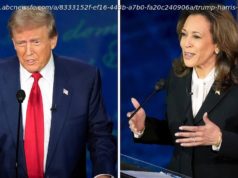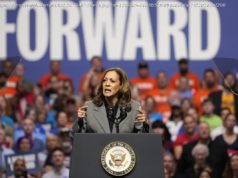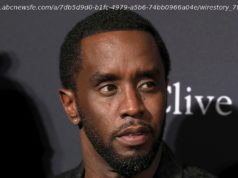Mr. Shagari sought to revive democratic rule, but military officers deposed him during a 1983 economic crisis caused by plummeting oil prices.
Shehu Shagari, the former president of Nigeria who sought to revive democratic rule only to be deposed by military officers impatient with his seeming inability to confront endemic corruption and economic crisis, died on Friday in Abuja, the capital. He was 93.
Mr. Shagari died at the National Hospital after a brief illness, his grandson Bello Shagari said on Twitter.
It was a token of Nigeria’s long tug-of-war between the barracks and the ballot box that President Muhammadu Buhari — who, as an army general, removed Mr. Shagari from power in 1983 — returned to office in the 2015 elections, the first peaceful transfer of power between civilians of different political parties since Nigeria’s independence from Britain in 1960.
By then, Mr. Shagari, patrician and mild-mannered, had become what his followers called an elder statesman as his country grappled with challenges that had become familiar: an almost reflexive recourse to graft; an economic malaise relating to falling prices of oil, Nigeria’s dominant foreign-currency earner; and a fierce divide between its northern Muslims and southern Christians that became ever more stark with the rise of a bloodthirsty jihadist movement called Boko Haram .
On his 90th birthday in 2015, President Goodluck Jonathan and five previous presidents came to visit him, Nigerian news reports said.
“I mourn the departure of a patriot, who served Nigeria with humility, integrity and diligence,” Mr. Buhari said Saturday on Twitter.
Mr. Shagari was president for just over four years, winning two elections, both of them disputed by his opponents. He was criticized by his adversaries for his meekness in governing sub-Saharan Africa’s most populous nation. Indeed, with his scholarly manners, the undemonstrative Mr. Shagari, a former schoolteacher raised as a devout Sunni Muslim, sometimes seemed an unlikely figurehead for a nation that projected itself as Africa’s colossus.
He was the first civilian leader to take office under a constitution modeled on that of the United States, with an executive president, a bicameral legislature and significant powers given to the governors of the country’s 19 federal states.
While most post-independence rulers were high-ranking soldiers bent on enforcing their will with scant regard for consensus-building, Mr. Shagari, in his flowing Islamic robes and distinctive beaded headgear, described himself as a conciliator who operated above the daily joust of Nigeria’s politics.
But he could not remain aloof from a global glut in oil that sent prices tumbling in the early 1980s, just as the people who voted him into power were expecting better lives. In 1983, as economic woes seized the land, he presided over one of his country’s most dramatic peacetime upheavals, ordering the expulsion of foreigners drawn to Nigeria by its oil wealth.






